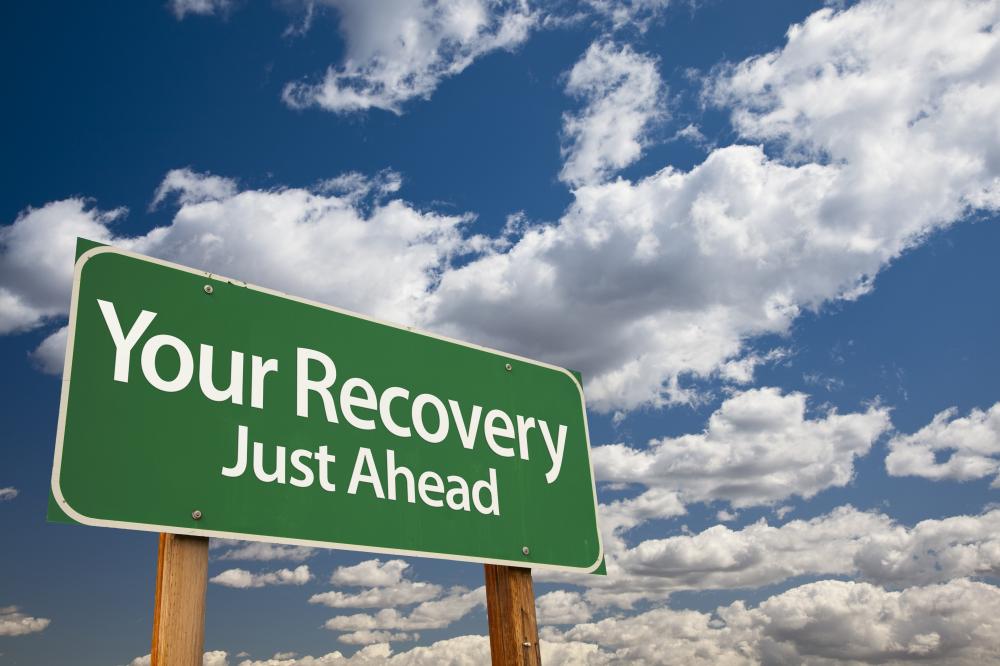
The Importance of Comprehensive Care During Rehab
The journey to recovery is a unique path, different for each person and requiring individualized attention and care. In Tucson Drug Rehabs, comprehensive care plays a pivotal role in treating substance use disorders by addressing not only the physical aspects of addiction but also the mental, emotional, and spiritual needs of each client. This type of care ensures a holistic approach that can lead to successful long-term recovery.
Programs like those offered by The River Source are designed to support clients through every phase of recovery. By providing services that range from alcohol and drug detox to outpatient programs incorporating structured counseling, these facilities focus on healing the whole person. An individualized treatment approach is essential, as it tailors therapies to meet each client’s unique needs and challenges.
The Role of Evidence-Based Treatment
Evidence-based treatment methods are a cornerstone of effective rehabilitation programs within Tucson Drug Rehabs. These treatments are grounded in scientific research and have been proven to aid in recovery from substance use disorders. The River Source employs these techniques within its Continuum of Care, which ensures that clients receive the most effective therapies available.
From cognitive-behavioral therapy (CBT) to motivational interviewing, these evidence-based approaches help clients understand their addiction and develop coping strategies to maintain sobriety. By focusing on strategies that have been meticulously tested and refined, rehab centers are equipped to offer high-quality care that supports clients’ recovery processes.
Incorporating evidence-based practices also means programs are adaptable, allowing for adjustments based on ongoing research and client feedback. This continuous improvement ensures that clients have access to the latest and most effective treatments available.
Integrative and Holistic Approaches
Holistic and integrative approaches have gained recognition in Tucson Drug Rehabs for their effectiveness in promoting overall well-being. These methods, employed by facilities like The River Source, include a combination of traditional and alternative therapies designed to treat the whole person rather than just the symptoms of addiction.
Integrative care might involve yoga, meditation, acupuncture, or naturopathic medicine, all aimed at enhancing mental and physical health. These therapies work alongside conventional medical treatments, creating a balanced and supportive environment for recovery. Clients often find that these holistic practices help them develop a deeper connection to themselves and their journey toward sobriety.
Through the incorporation of such diverse therapies, rehab centers are able to offer a personalized and comprehensive recovery plan that acknowledges and respects each client’s individual path to healing.
Navigating Insurance and Financial Assistance
One of the primary concerns for individuals seeking treatment at Tucson Drug Rehabs is the financial aspect of rehabilitation. Navigating insurance coverage can be daunting, but centers like The River Source aim to streamline this process to ensure clients receive the care they need without unexpected costs.
- In-network options with major insurance carriers
- Transparent insurance verification processes
- Availability of financial assistance programs
By offering these services, rehab centers enable clients and their families to focus on recovery rather than financial stress. Ensuring coverage and minimizing out-of-pocket expenses is a priority for facilities that value accessibility and inclusivity in their treatment programs.
The Impact of Family Involvement
Family involvement is a critical component in the recovery process and is actively encouraged in Tucson Drug Rehabs. At The River Source, family therapy sessions and visitation are integrated into the recovery plan, recognizing the vital role families play in supporting their loved ones through treatment.
Engaging family members in therapy helps in addressing the systemic issues related to addiction and facilitates healing for all involved. By fostering open communication and offering education on addiction, these programs work to rebuild and strengthen family relationships, which are often crucial in maintaining long-term sobriety.
Family involvement also provides emotional support and accountability for clients, helping them stay motivated and committed to their recovery goals.
Success Rates and Recovery Guarantees
Rehabilitation centers in Tucson, such as The River Source, take pride in their high success rates and innovative offerings like recovery guarantees. These measures ensure that clients receive continual support throughout their recovery journey, helping to maintain sobriety even after completing formal treatment.
The Recovery Guarantee is unique in that it offers clients additional treatment at no extra cost if they experience a relapse within one year post-completion of their program. This commitment to long-term success demonstrates the confidence and dedication these centers have to their clients’ well-being and recovery outcomes.
By focusing on individualized treatment plans and providing continuous support, rehab centers are able to align their definition of success with each client’s personal goals, ensuring a meaningful recovery experience.
Emotional and Spiritual Healing
Tucson Drug Rehabs emphasize the importance of addressing emotional and spiritual needs as part of the recovery process. Programs at The River Source integrate therapies that foster emotional resilience and spiritual growth, recognizing these aspects as pivotal in achieving sustained sobriety.
Counseling sessions often incorporate techniques aimed at exploring emotional triggers, while spiritual practices encourage introspection and personal growth. Clients are given the opportunity to reconnect with their inner selves, forging a path toward deeper healing and understanding.
This dimension of recovery not only aids in overcoming addiction but also enriches clients’ lives by instilling a sense of purpose and fulfillment that extends beyond their treatment period.
Continuing Care and Aftercare Support
Post-treatment support is a vital element in Tucson Drug Rehabs, ensuring that clients continue to receive guidance and care even after leaving the facility. Continuing care programs offered by The River Source provide structured support systems to help clients transition smoothly into their everyday lives while maintaining their sobriety.
These support systems may include regular follow-up sessions, community support groups, or online resources that keep clients connected with their recovery network. By offering such extensive aftercare options, rehab centers empower clients to face challenges with confidence and resilience, reducing the risk of relapse.
Continuing care is often tailored to meet individual needs, with flexible schedules and personalized resources designed to promote ongoing growth and stability in recovery.
Personalized Approaches to Addiction Treatment
Recognizing that no two individuals are the same, Tucson Drug Rehabs like The River Source emphasize the significance of personalized treatment plans. These programs are crafted based on each client’s specific circumstances, preferences, and recovery goals, ensuring a tailored and effective approach to rehabilitation.
The personalized approach includes individual counseling sessions, assessments to identify triggers, and customized therapy modalities. This ensures that clients receive the most appropriate care for their unique situations, enhancing the likelihood of successful outcomes and long-term sobriety.
By prioritizing individualized care, rehab centers demonstrate their commitment to catering to the diverse needs of their clientele, reinforcing the client’s role as an active participant in their own recovery journey.

How long do you stay in inpatient rehab?
The duration of a stay in inpatient rehab can vary based on the individual’s needs and the specific program they are enrolled in. At The River Source, an inpatient treatment program is often part of a comprehensive approach that averages about 150 days when combined with outpatient care. This time frame allows for thorough detoxification, individualized therapy, and holistic treatments that address physical, mental, and emotional recovery. Some clients might find they need more time, while others may transition to outpatient care sooner, depending on their progress and stability. It’s important to recognize that recovery is not a one-size-fits-all journey; the length of stay should be guided by the client’s unique circumstances and goals.
How long is the stay at Sierra Tucson?
Sierra Tucson typically offers inpatient treatment programs that last around 30 to 90 days, depending on the individual’s needs and the specifics of their treatment plan. These programs are designed to provide intensive care during the initial phases of recovery, with a focus on stabilizing the client and beginning the process of healing. It’s essential for individuals to communicate with treatment providers to tailor a stay that supports their personal recovery goals and aligns with their broader treatment plan, which may extend or adjust based on progress and recommendations from their care team.
Do all rehabs cost money?
Most rehabs do have associated costs, as they provide professional services, skilled staff, and resources that are essential for effective treatment. However, at The River Source, they understand the financial burden that rehab costs can impose. They offer transparent pricing, a range of payment options including major insurance plans, and financial assistance programs to make treatment more accessible. It’s also noteworthy that some state-funded or non-profit facilities may offer free or low-cost services, though these may have longer waiting lists or more limited resources. It’s beneficial for potential clients or their families to explore insurance coverage and inquire directly with rehab facilities about any financial relief options available.
What is the recovery rate of rehab?
The recovery rate for rehab can vary widely depending on many factors, including the type of treatment program, the duration of treatment, and the individual’s commitment to recovery. At The River Source, they have seen a significant impact from their comprehensive and personalized approach, noting a 35% increase in recovery success rates and an 86% reduction in the risk of relapse. It’s crucial to understand that recovery is a highly individual process, and success isn’t solely defined by statistics. It involves continuous growth and effort. Clients are encouraged to think of recovery as an ongoing journey, with rehab serving as a significant step in the right direction. Asking questions about what support is available post-treatment and the specific measures of success can provide deeper insight into expected outcomes.
What role do holistic approaches play in recovery?
Holistic approaches in recovery are designed to treat the individual as a whole, rather than just addressing the addiction itself. The River Source integrates holistic treatments such as yoga, meditation, and acupuncture alongside traditional therapies. These practices help clients connect deeper with themselves, manage stress, and improve physical health. For example, someone might discover through meditation that their stress is a major trigger for substance use, which they can then address through integrated therapies. By incorporating holistic methods, rehab centers can offer a balanced approach that supports mental, emotional, and spiritual healing, fostering a strong foundation for lasting sobriety. This comprehensive care model invites clients to think critically about all aspects of their life that influence their recovery.
How important is family involvement in the rehab process?
Family involvement is a key component of the rehab process at The River Source because it acknowledges that addiction often affects not just the individual, but those around them as well. By including family therapy and encouraging visitations, centers can address systemic issues and offer education on addiction to family members. This inclusion helps mend relationships and build a robust support network for the client. For instance, a client might find that through family therapy, longstanding communication barriers are broken down, creating a more supportive environment for their recovery. It is a collaborative way of rebuilding trust and ensuring that family members are equipped to support their loved one’s continued sobriety, contributing to a more holistic recovery experience for everyone involved.
